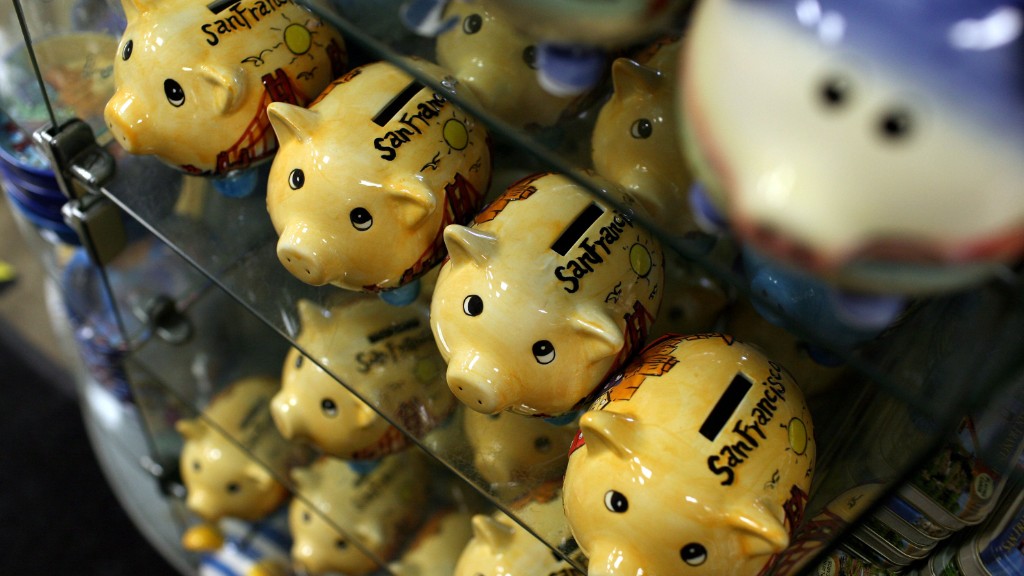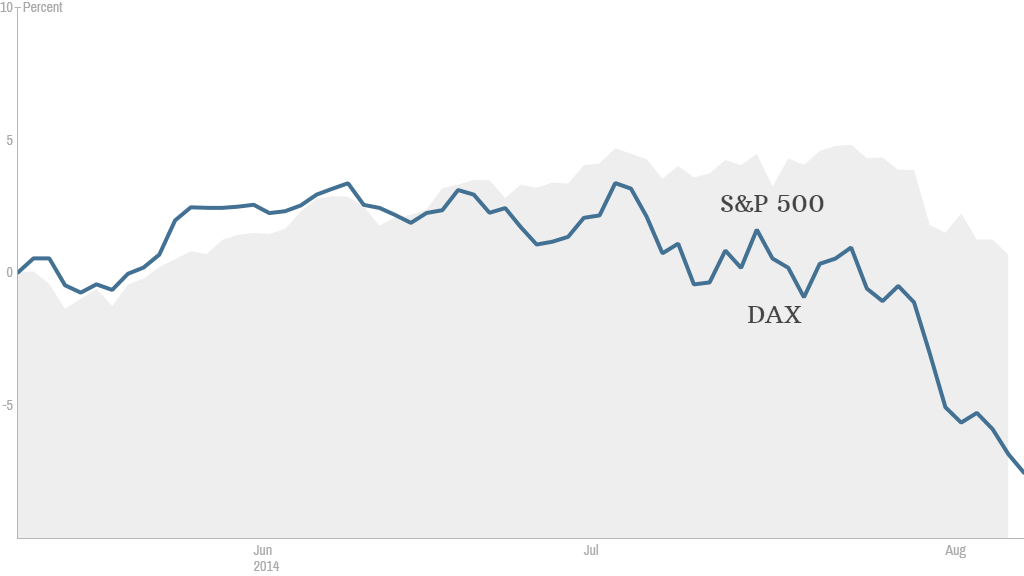
German investors are feeling the pain of escalating tensions with Russia that may have already pushed Europe's largest economy into reverse.
The country's main stock index has fallen by 11% from its peak in late June on fears of a trade war. That means the market is now technically in a "correction."
The DAX index is comprised of 30 major companies such as Adidas (ADDYY), Volkswagen (VLKAY), Siemens (SIEGY) and Deutsche Bank (DB). It was down by more than 1% Friday before trimming its losses. It has fallen by about 6% so far this year.
Europe, the U.S. and other Western nations have issued increasingly tough sanctions against Russia over its role in destabilizing parts of Ukraine.
Russian President Vladimir Putin responded this week by banning various food imports from the U.S., Europe, Australia, Canada and Norway.
Several companies have already warned of damage to come, and economic data have soured as businesses postpone big spending decisions. Germany is Russia's biggest trading partner in Europe and thus has most to lose.

Now Russian leaders are considering further retaliatory measures, including closing off the country's airspace to European and U.S. airlines. That could cost European airlines $30,000 each flight if they're forced to fly longer routes to Asia, Russian media have reported.
Shares in Germany's Lufthansa (DLAKF) fell nearly 3% Friday.
"We are potentially ready to introduce protective measures in aircraft building, shipbuilding, automobile manufacturing industries and in other sectors," said Russian Prime Minister Dmitry Medvedev.
Related: How much will Russia's food ban cost Europe?
Adidas slashed its earnings forecast last week, blaming weak Russian business as a key factor. Its shares have fallen by nearly 40% since the start of the year.
Shares in German defense contractor Rheinmetall have fallen about 5% since it warned that sanctions against Russia would hit 2014 earnings. Germany has canceled an export license for a big Rheinmetall contract with Russia.
European GDP data next week will give investors a sense of how bad the fallout from the Ukraine crisis has been. Some economists say Germany's economy may have shrunk in the three months to the end of June.
And growth in the eurozone as a whole may have all but evaporated after a measly 0.2% quarter-on-quarter gain in the first three months of the year.


